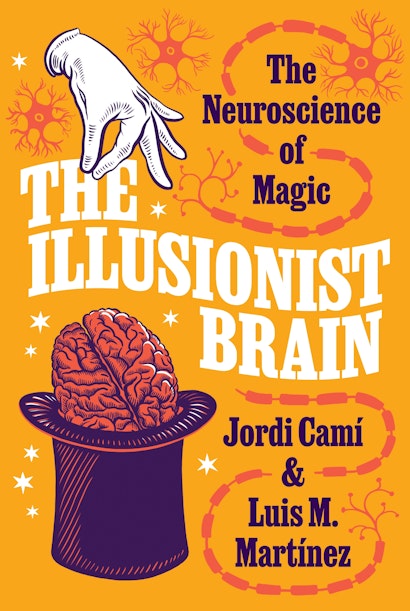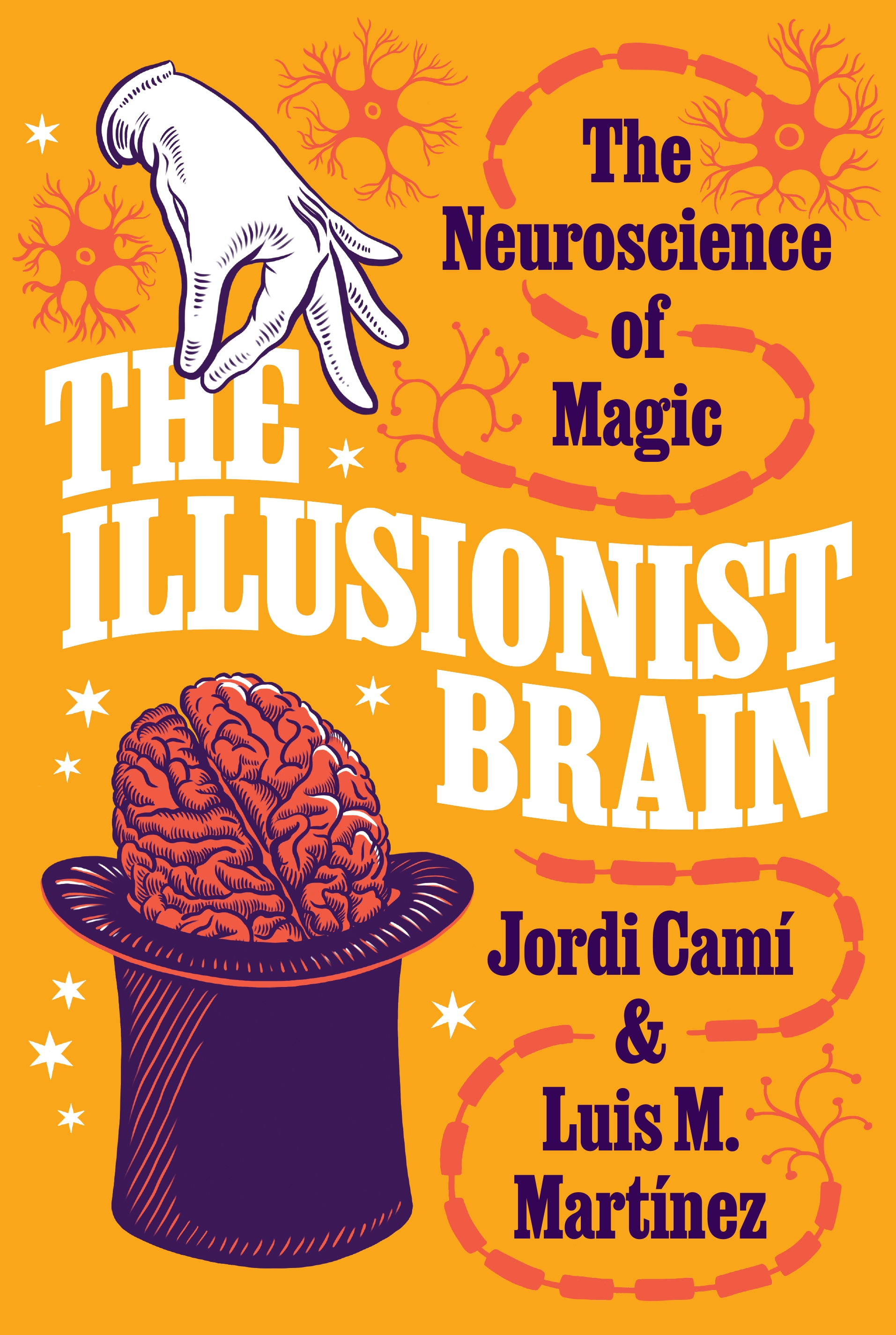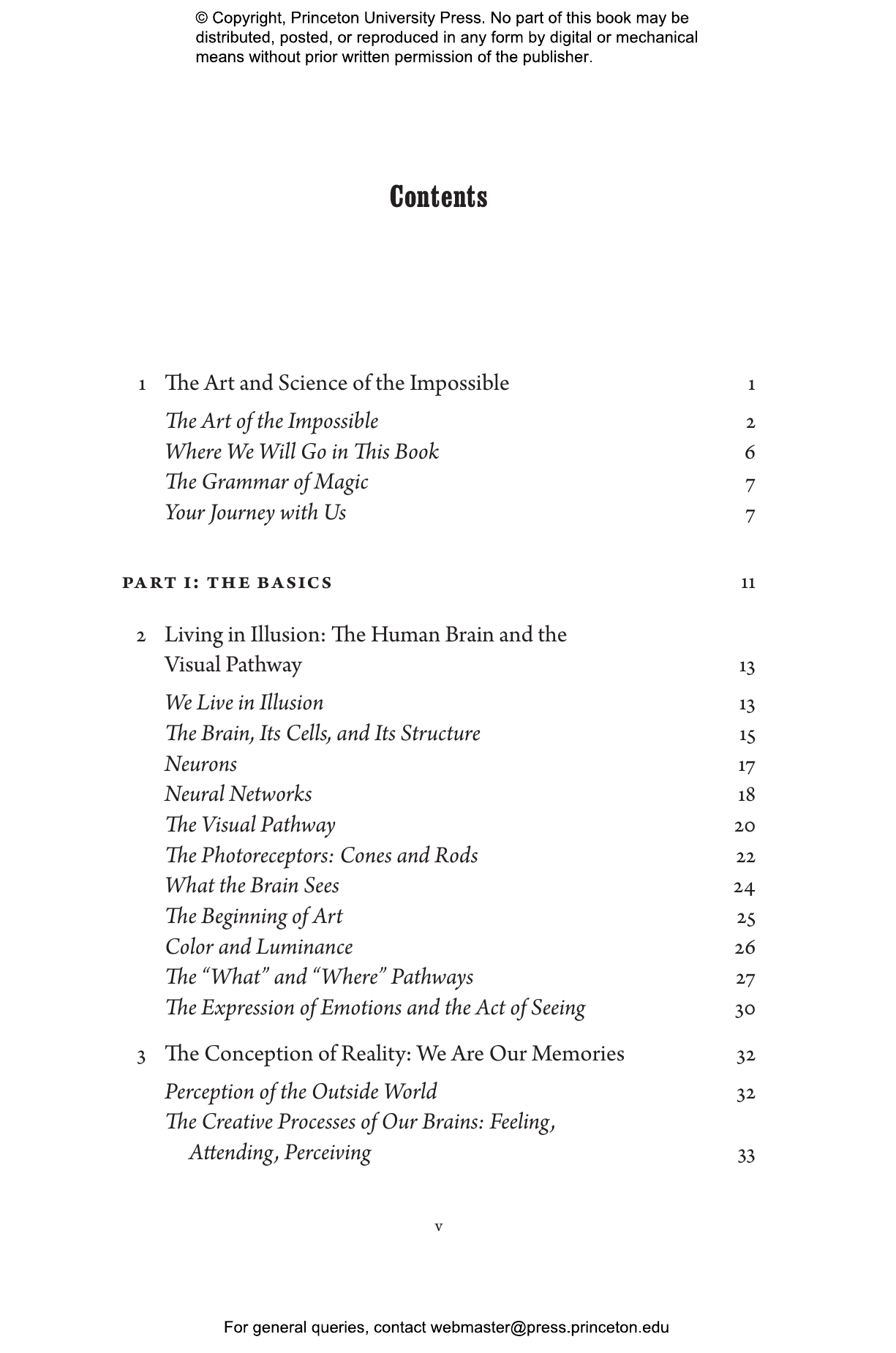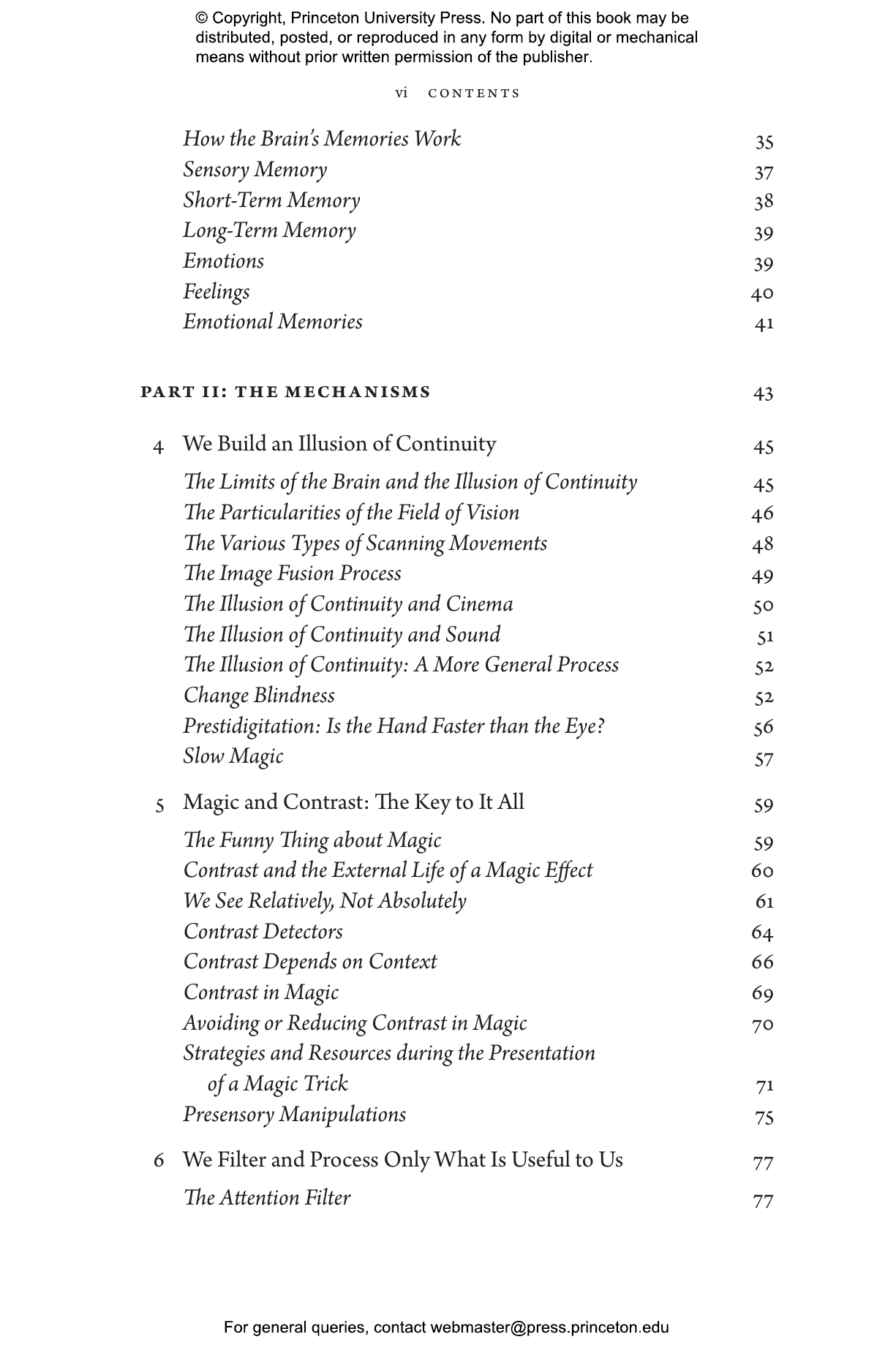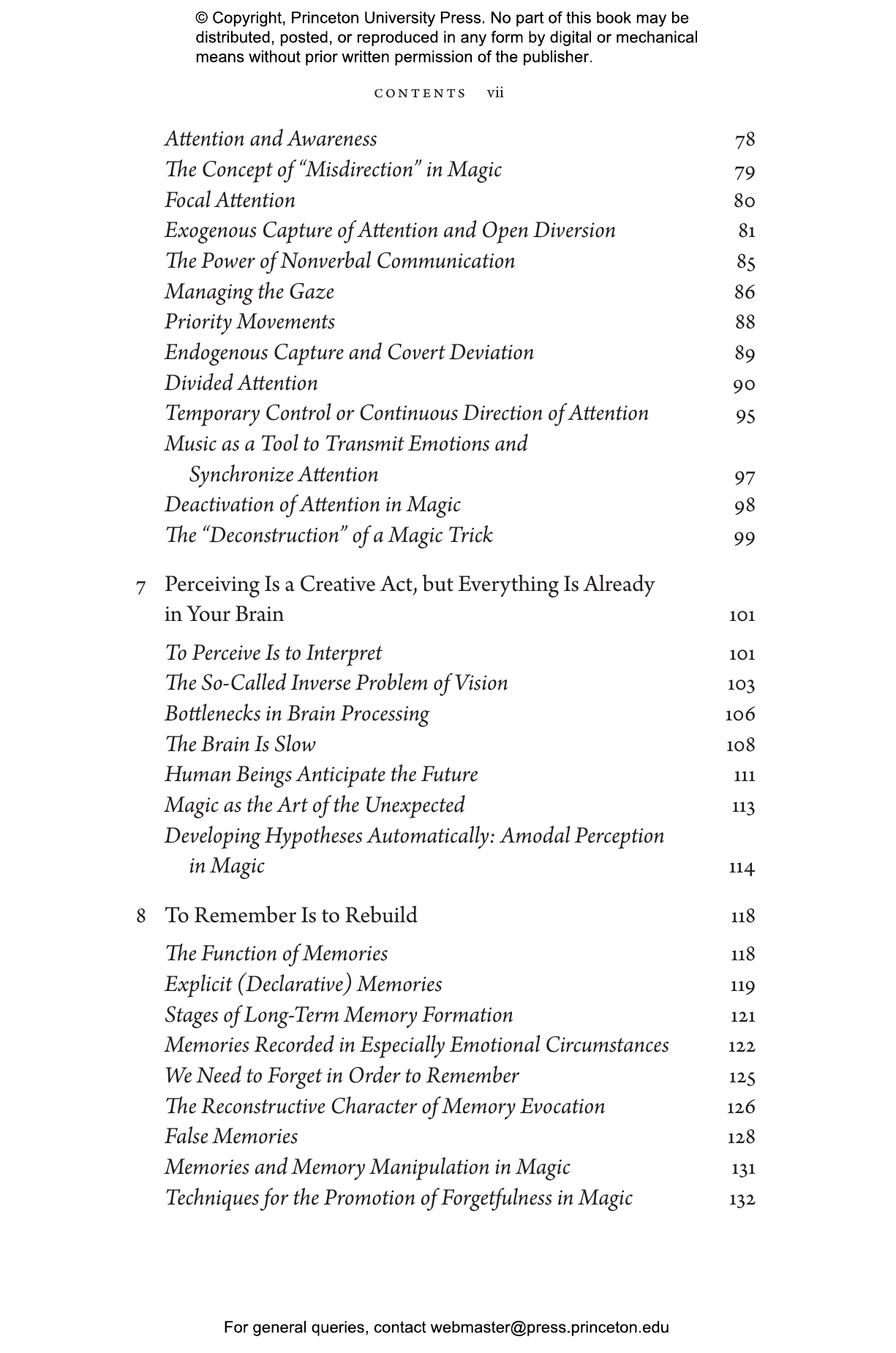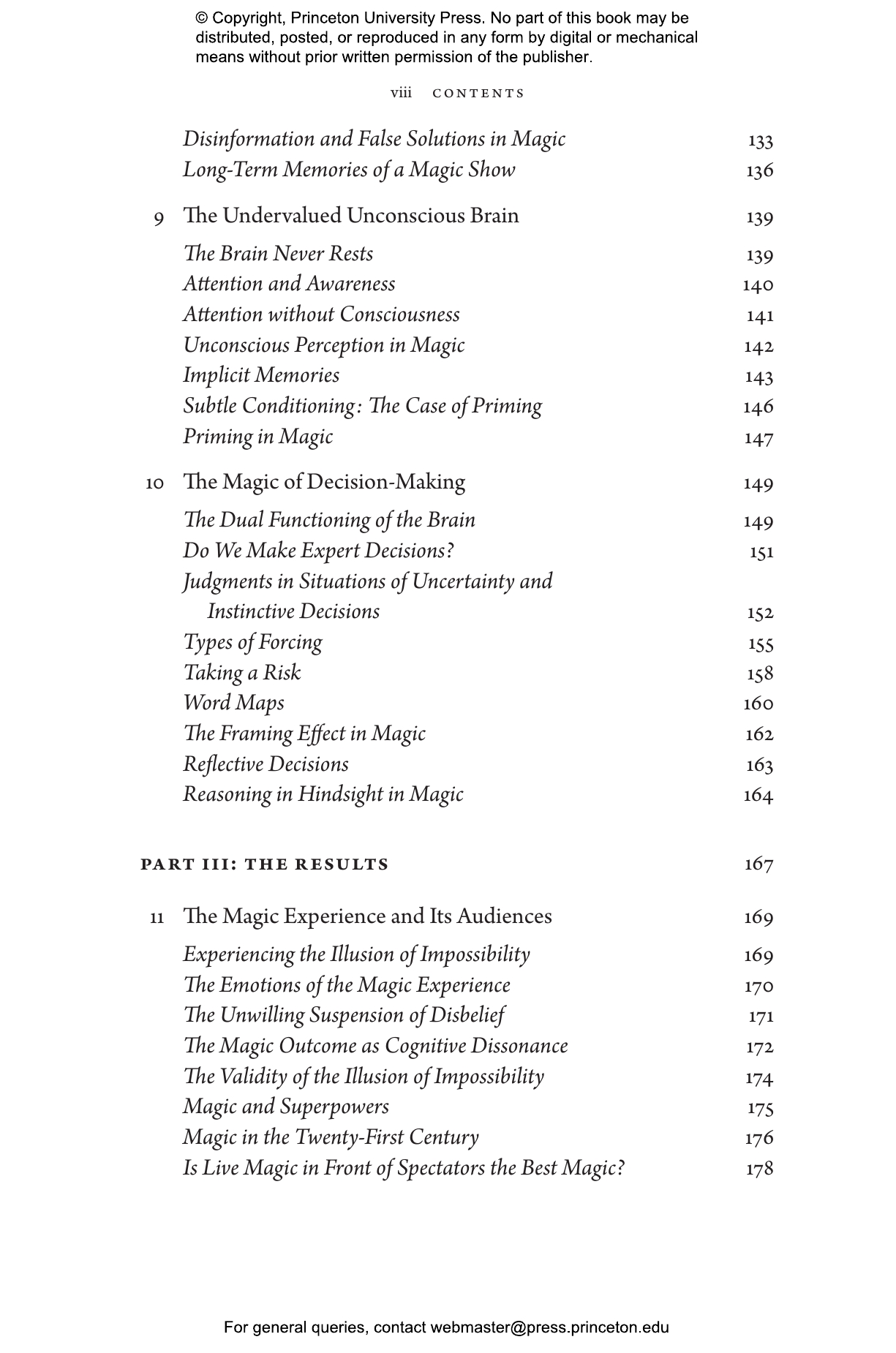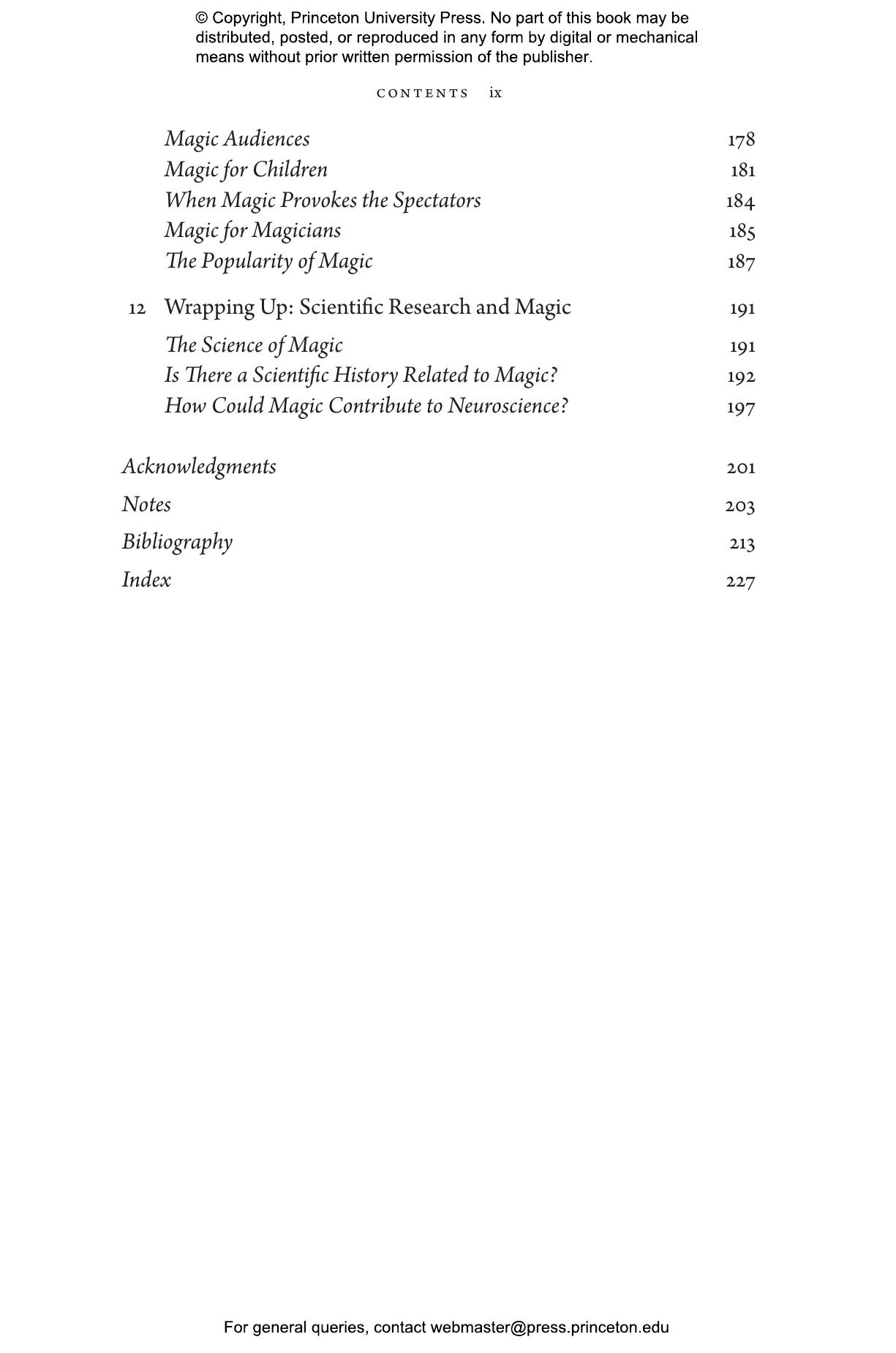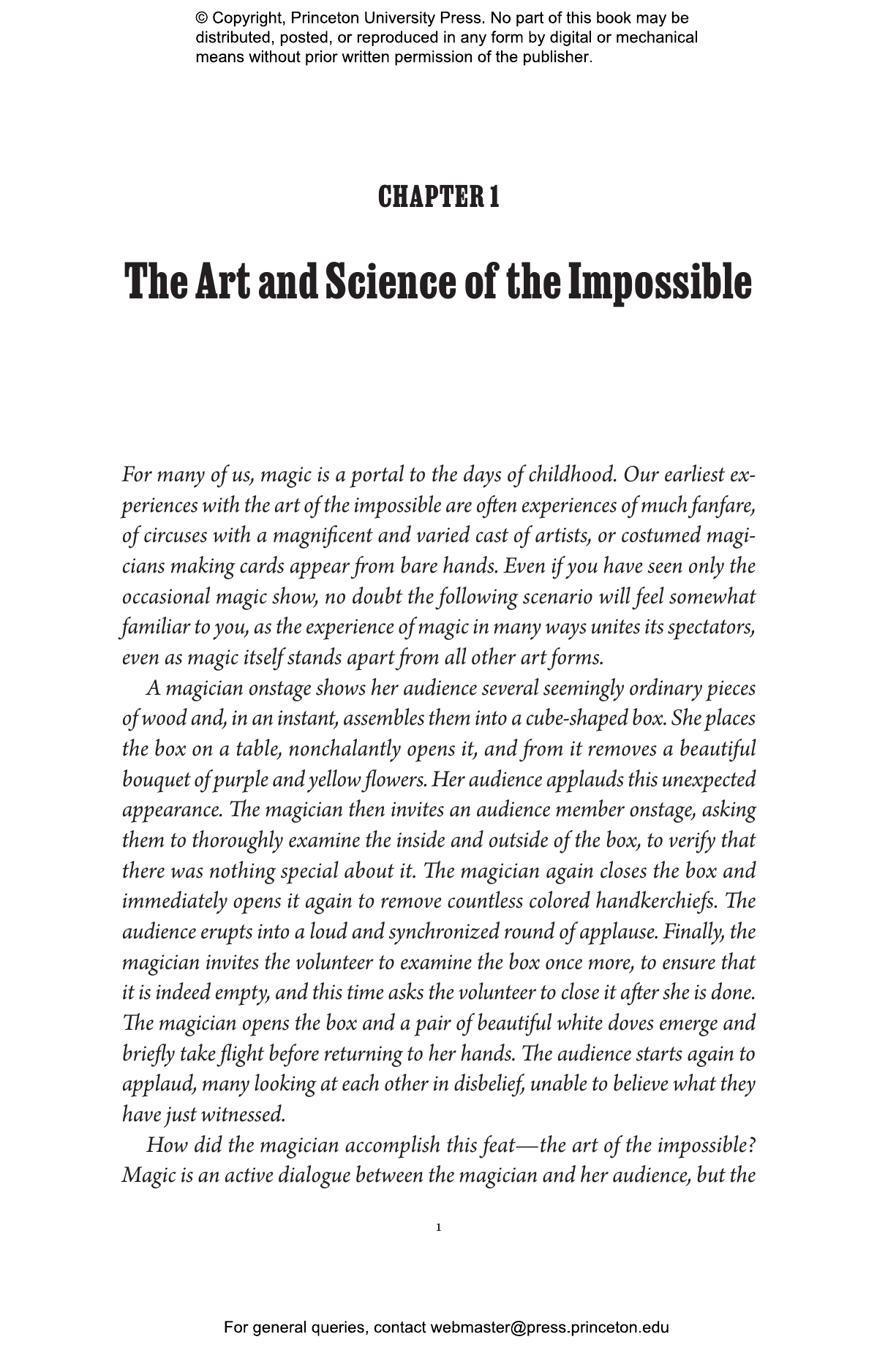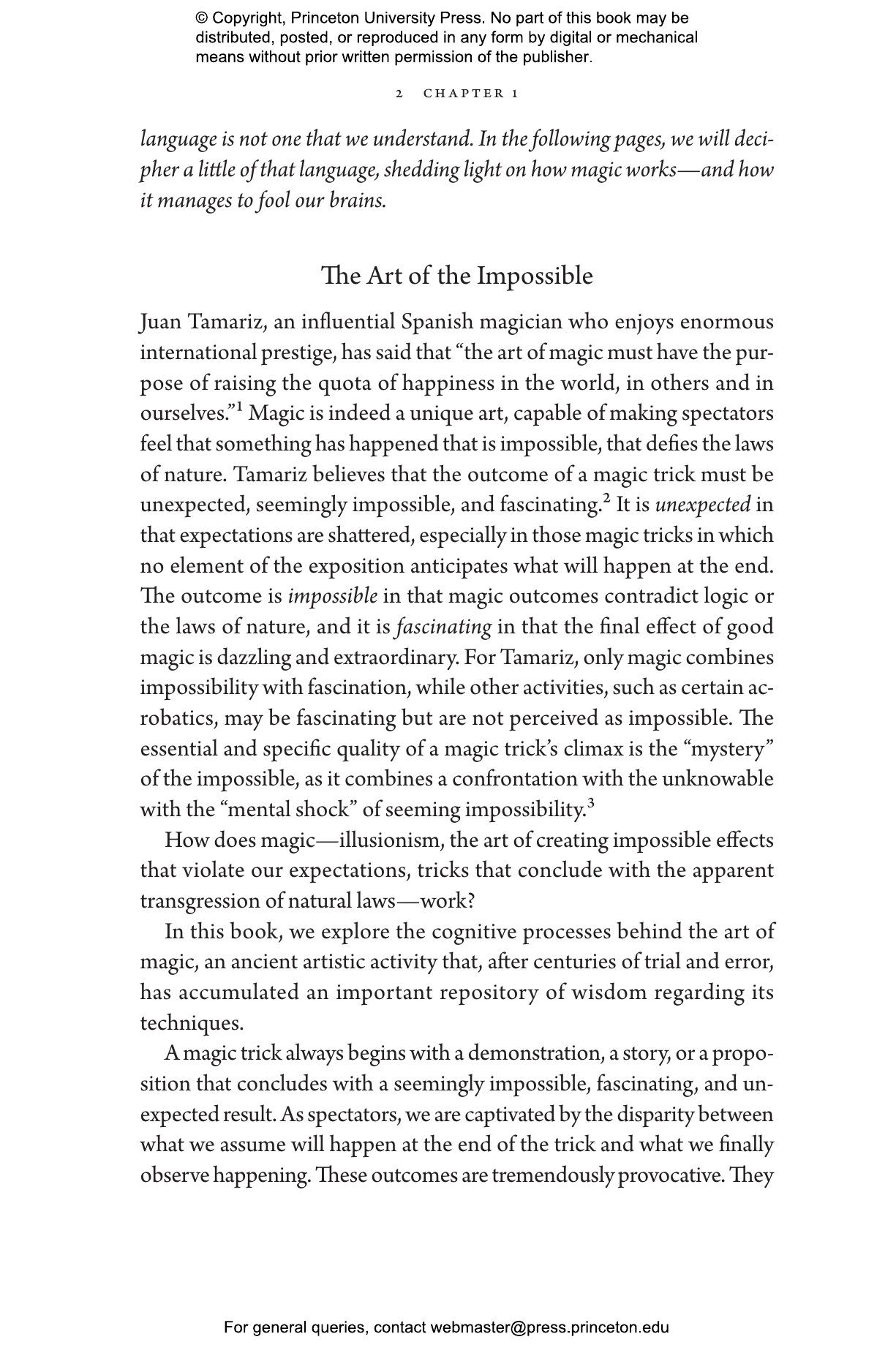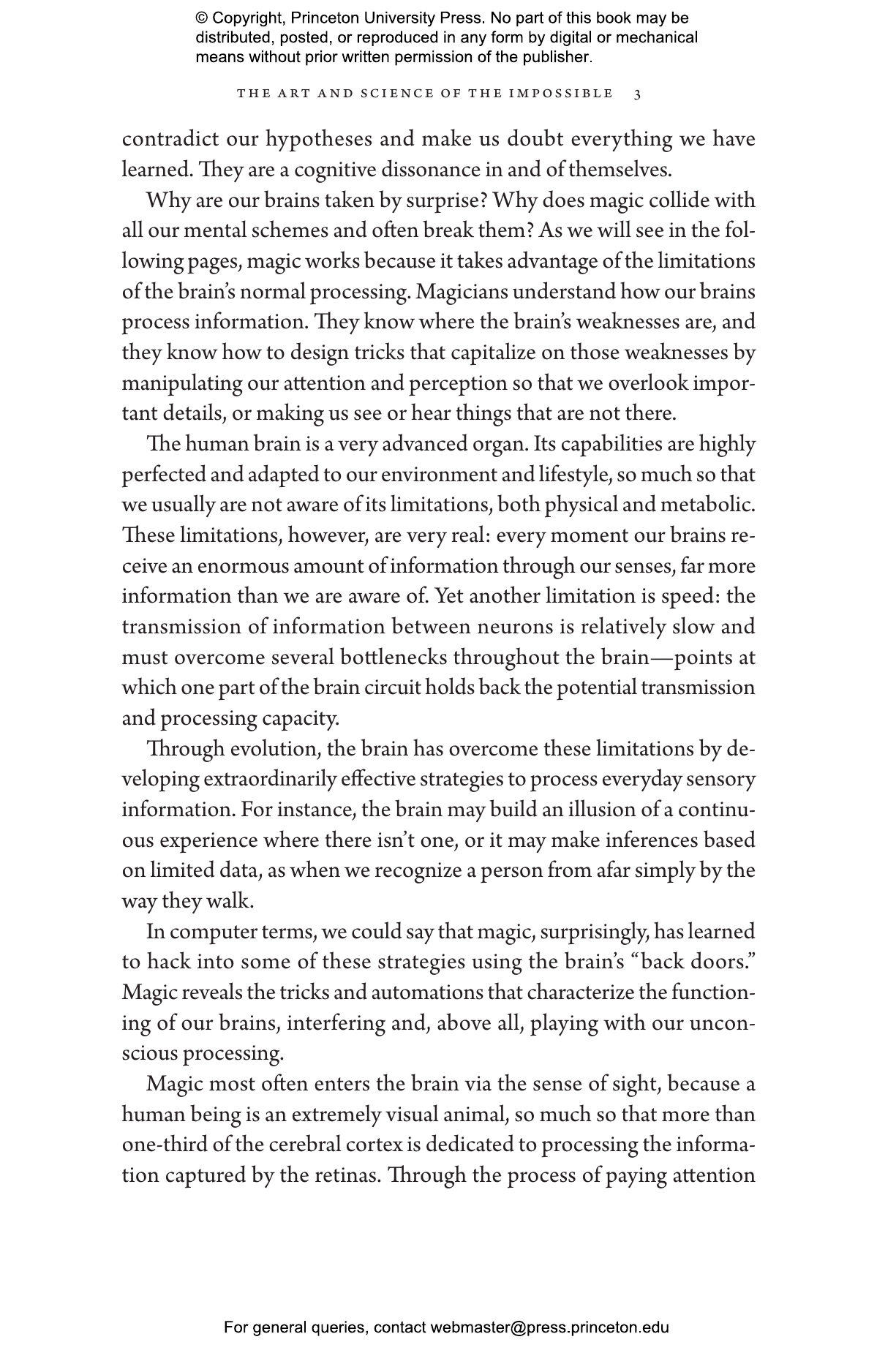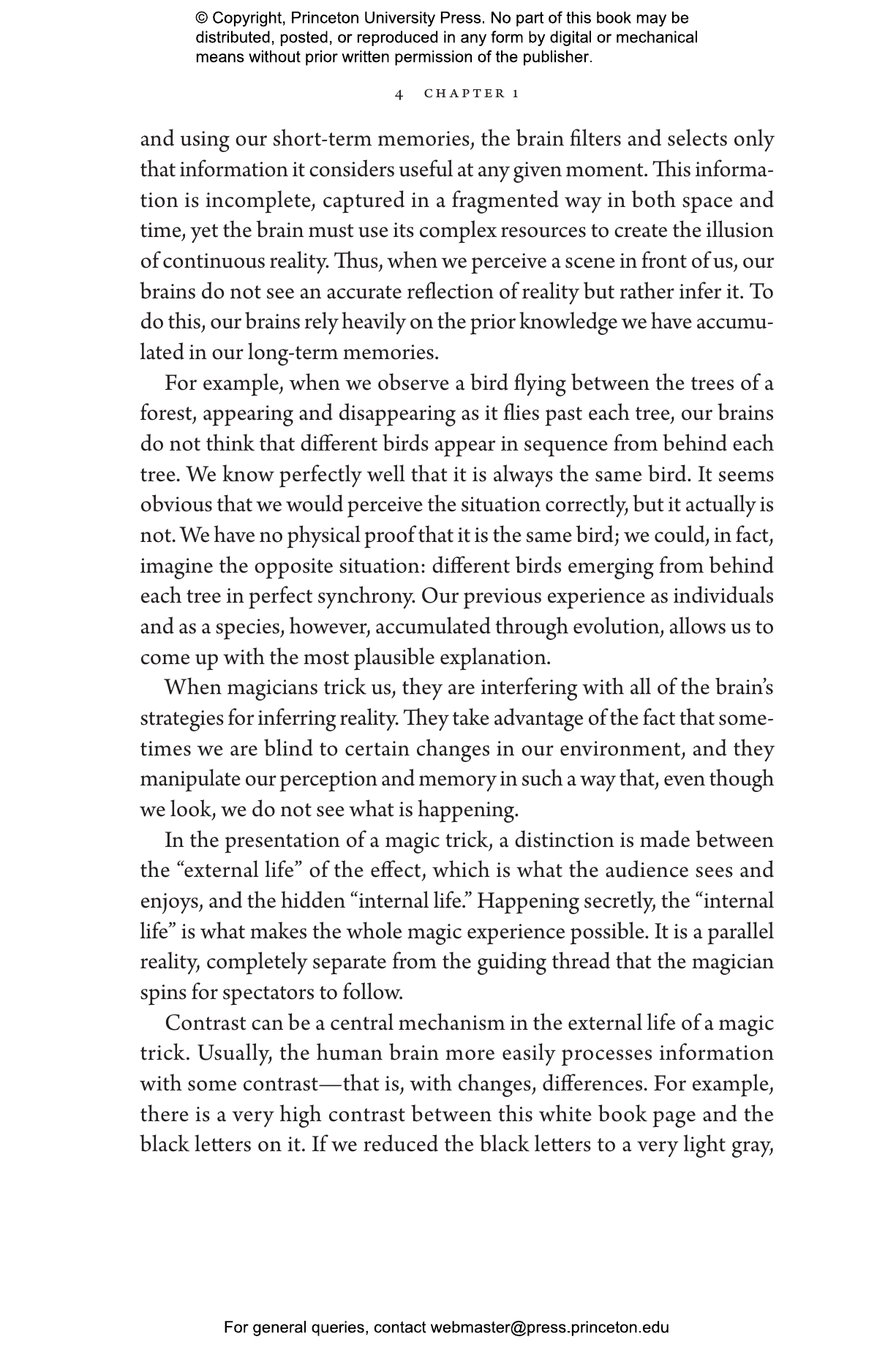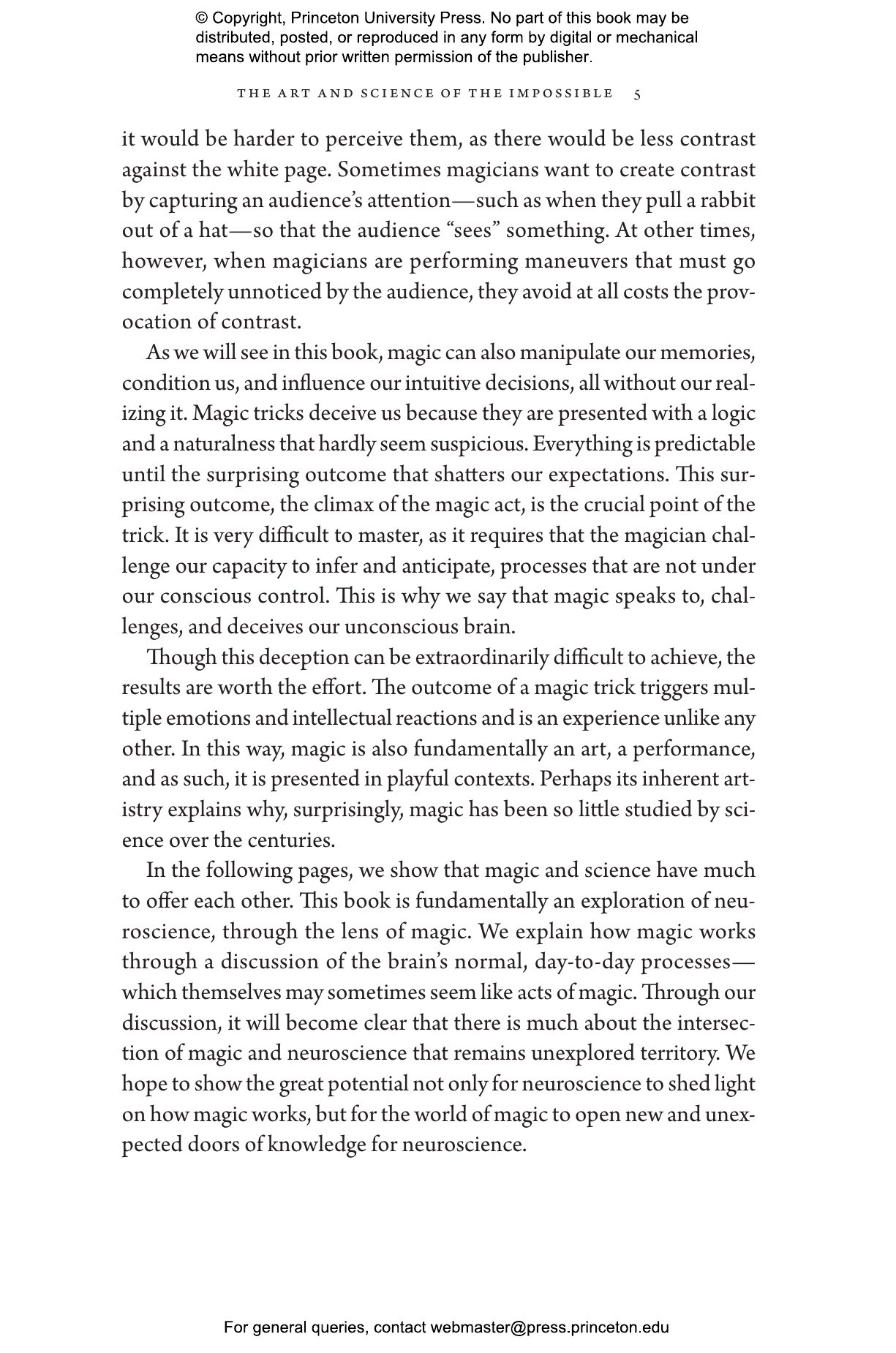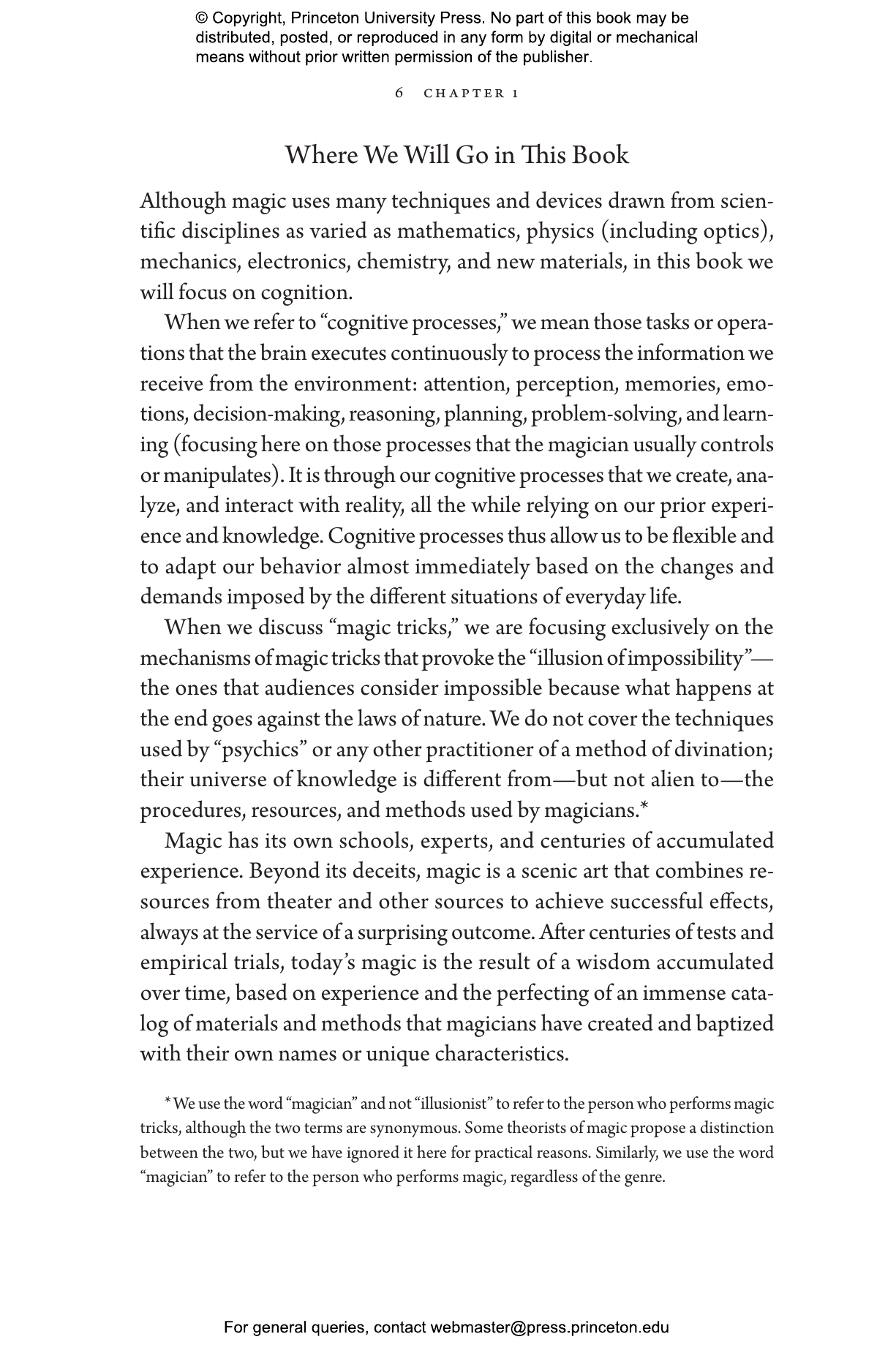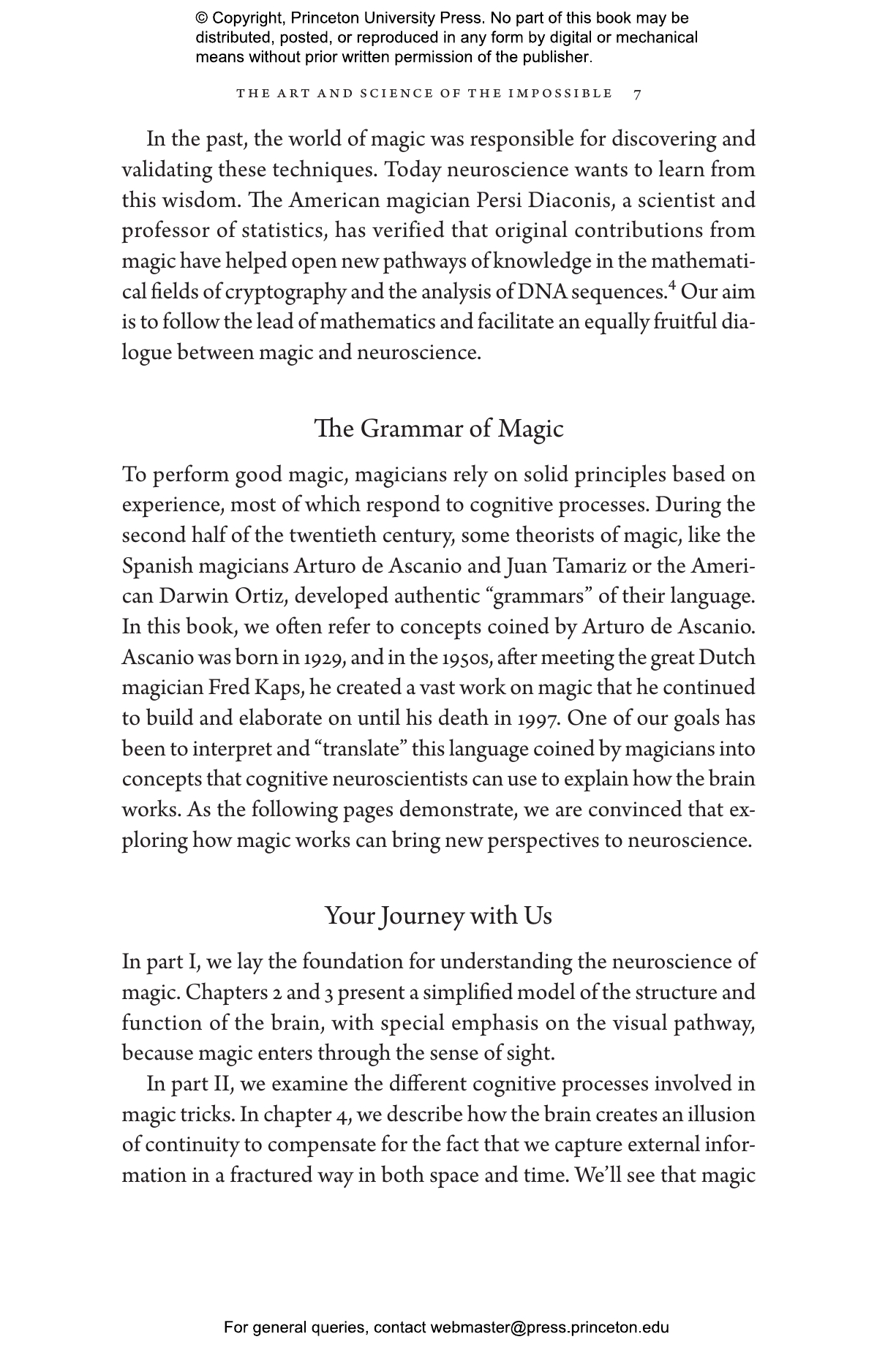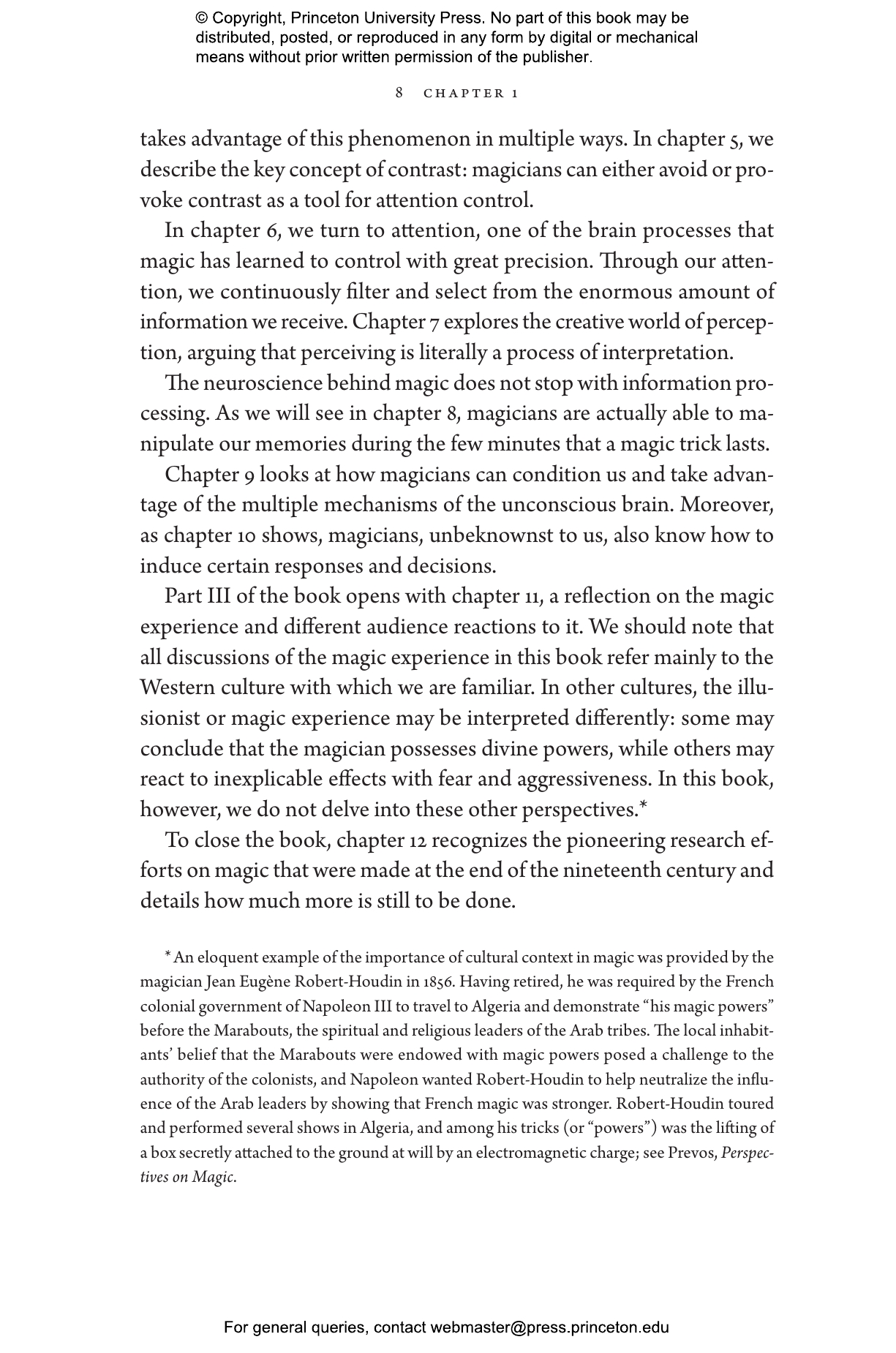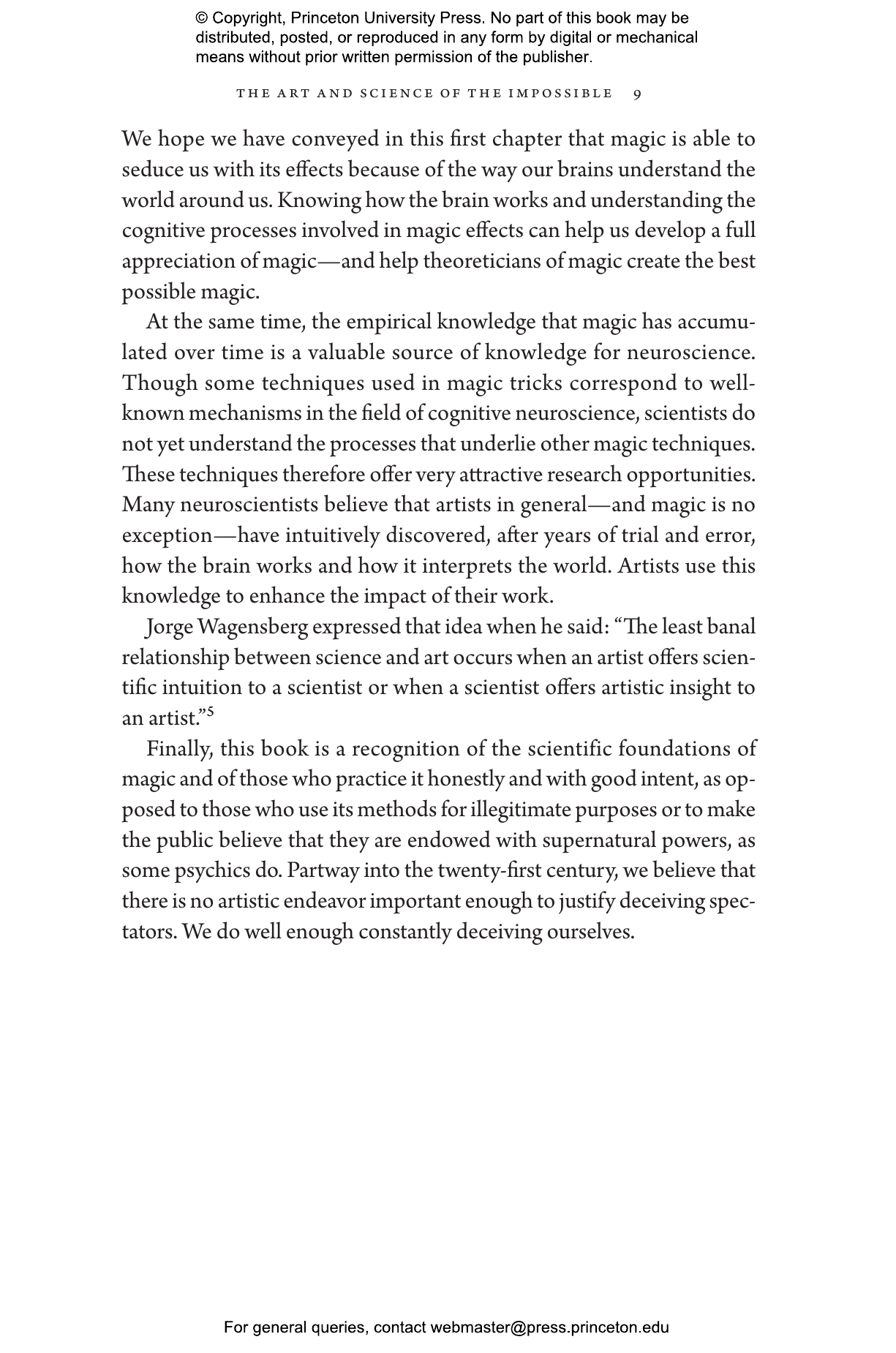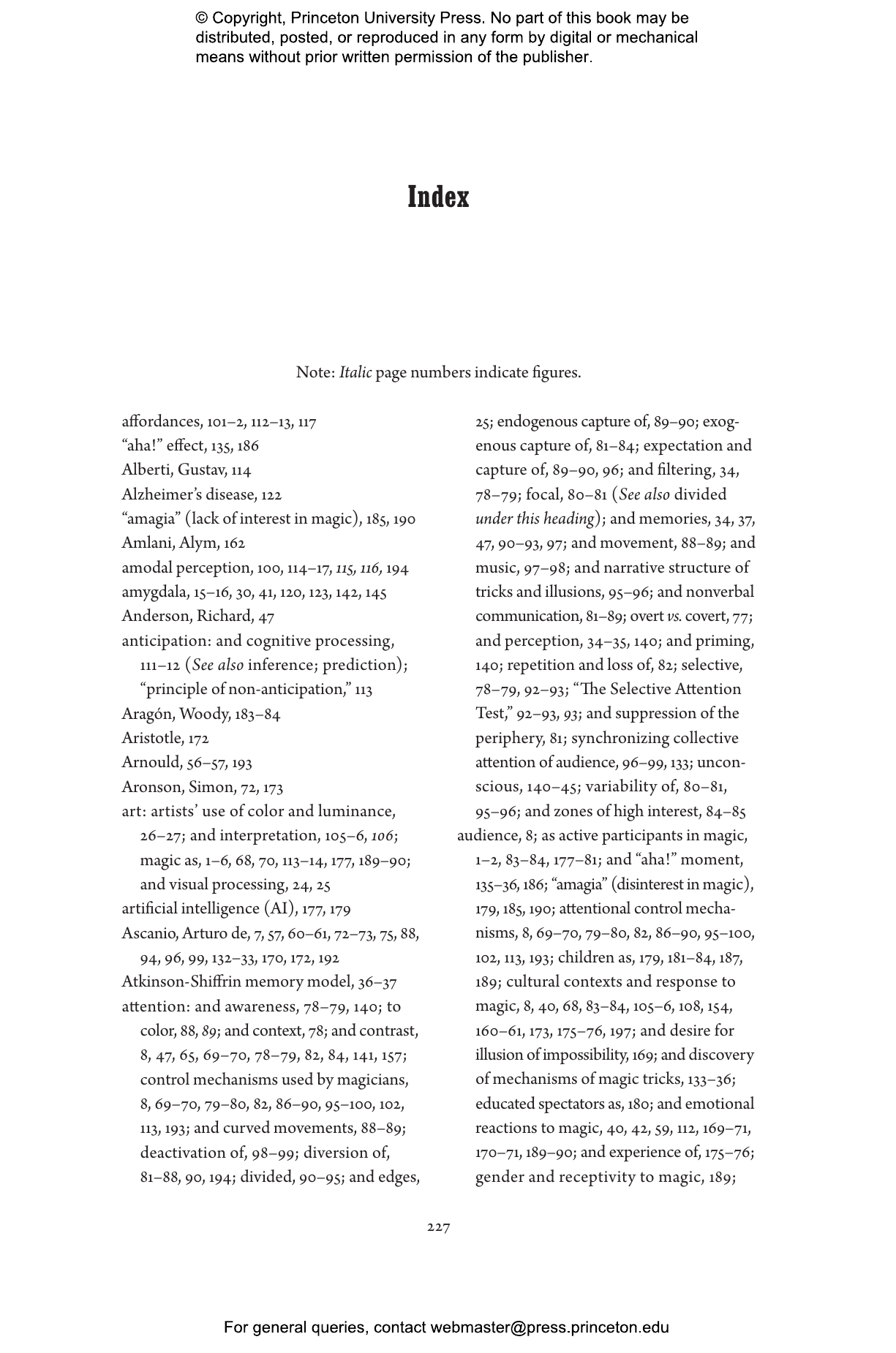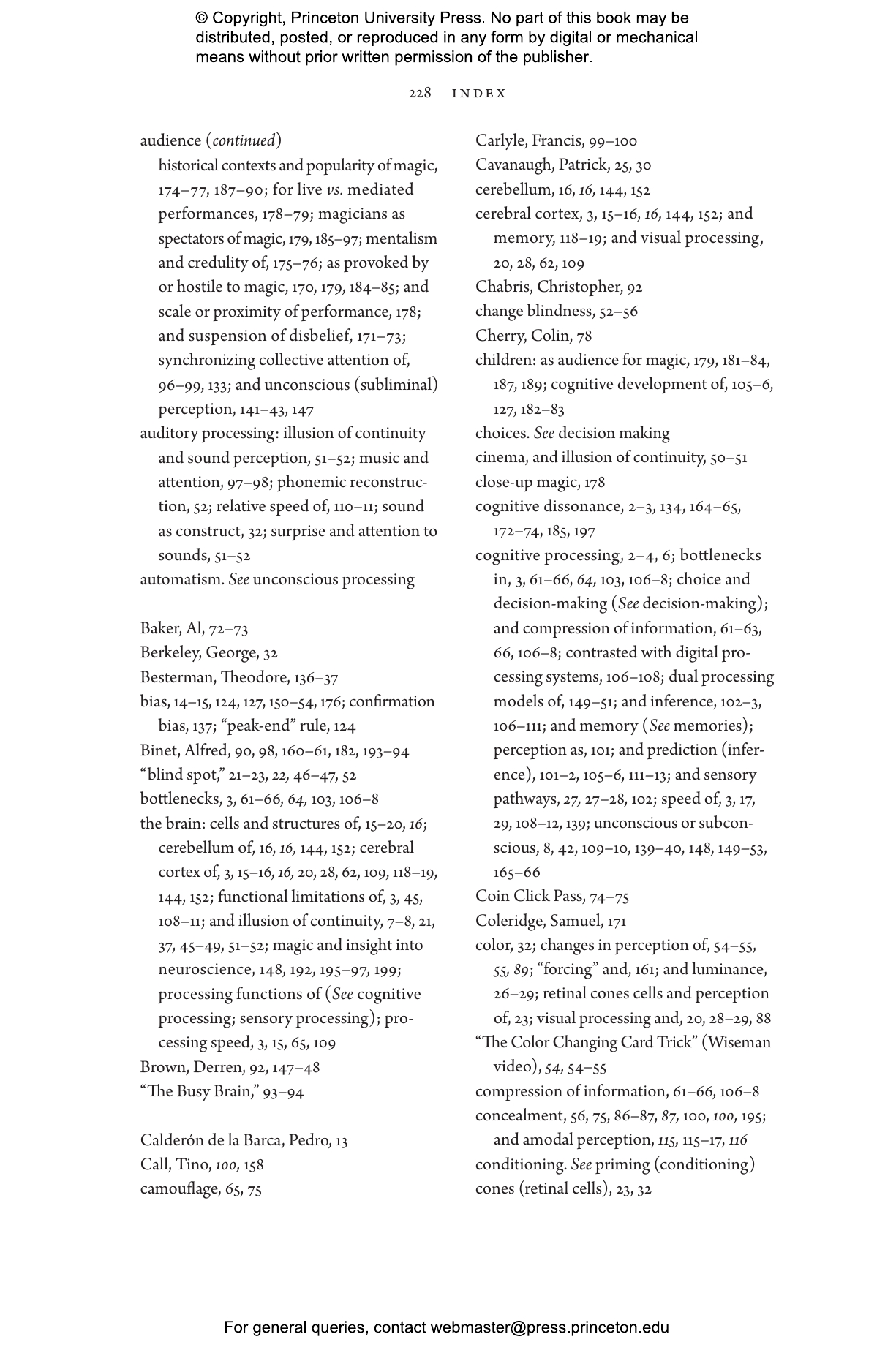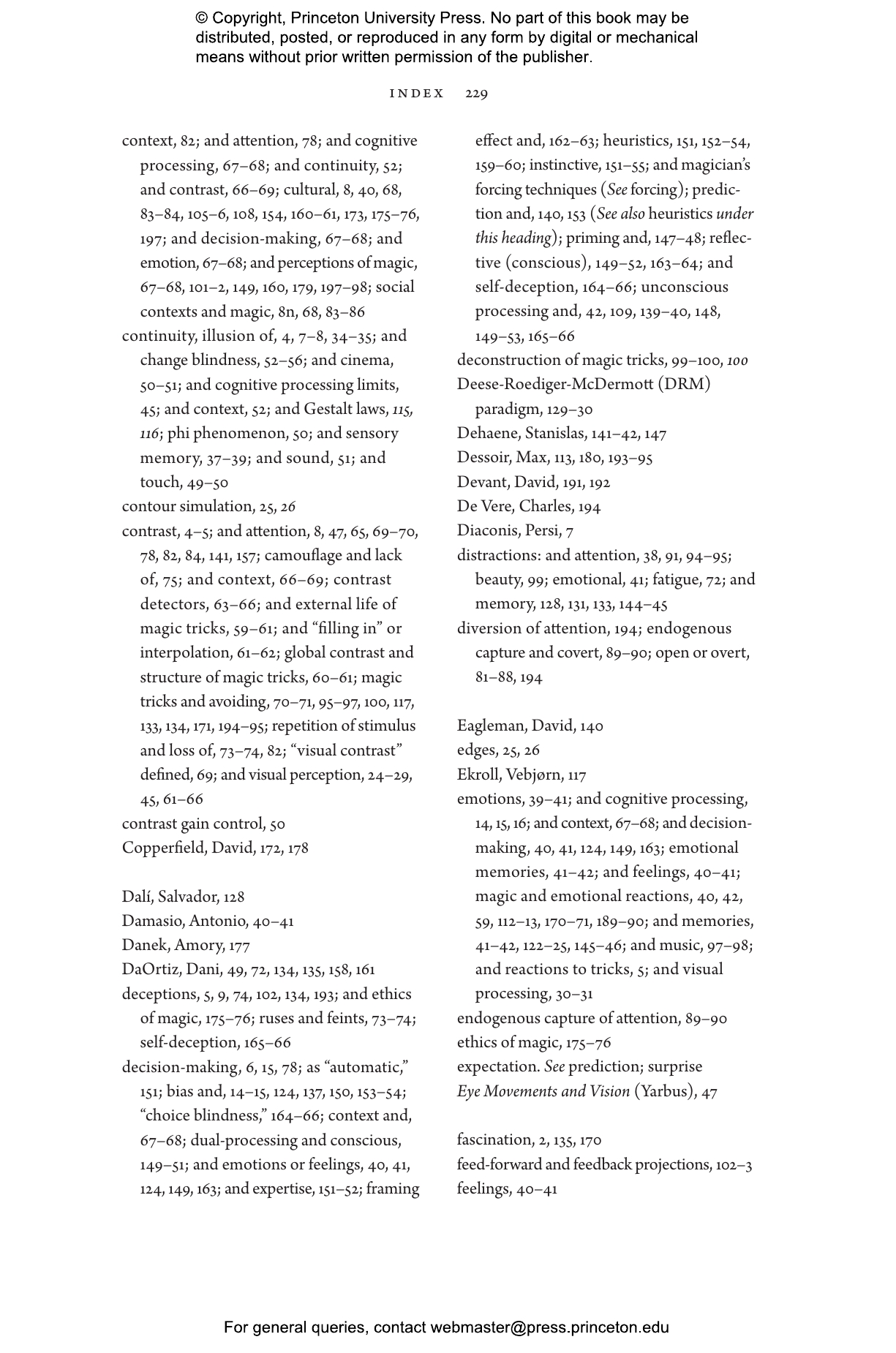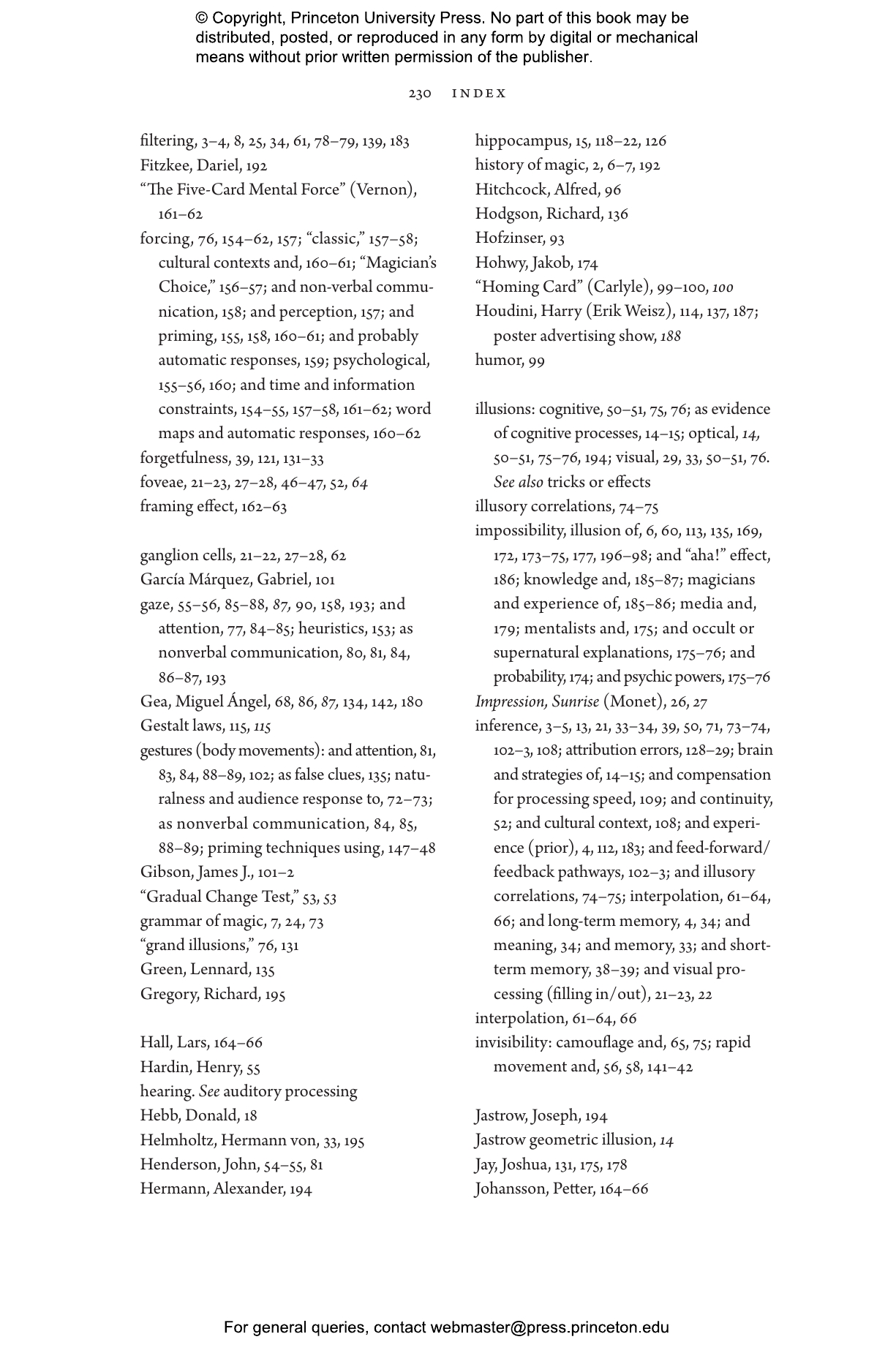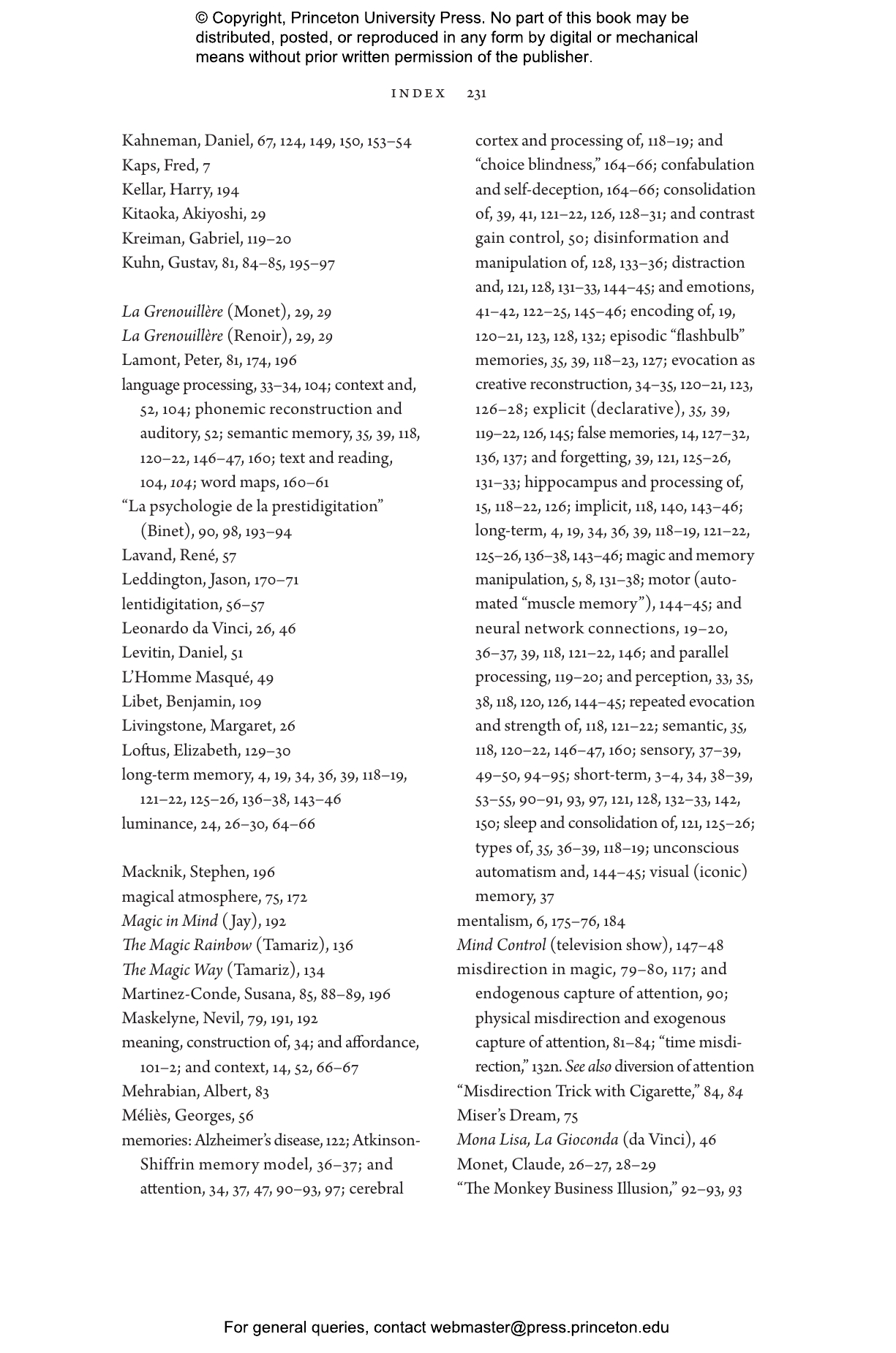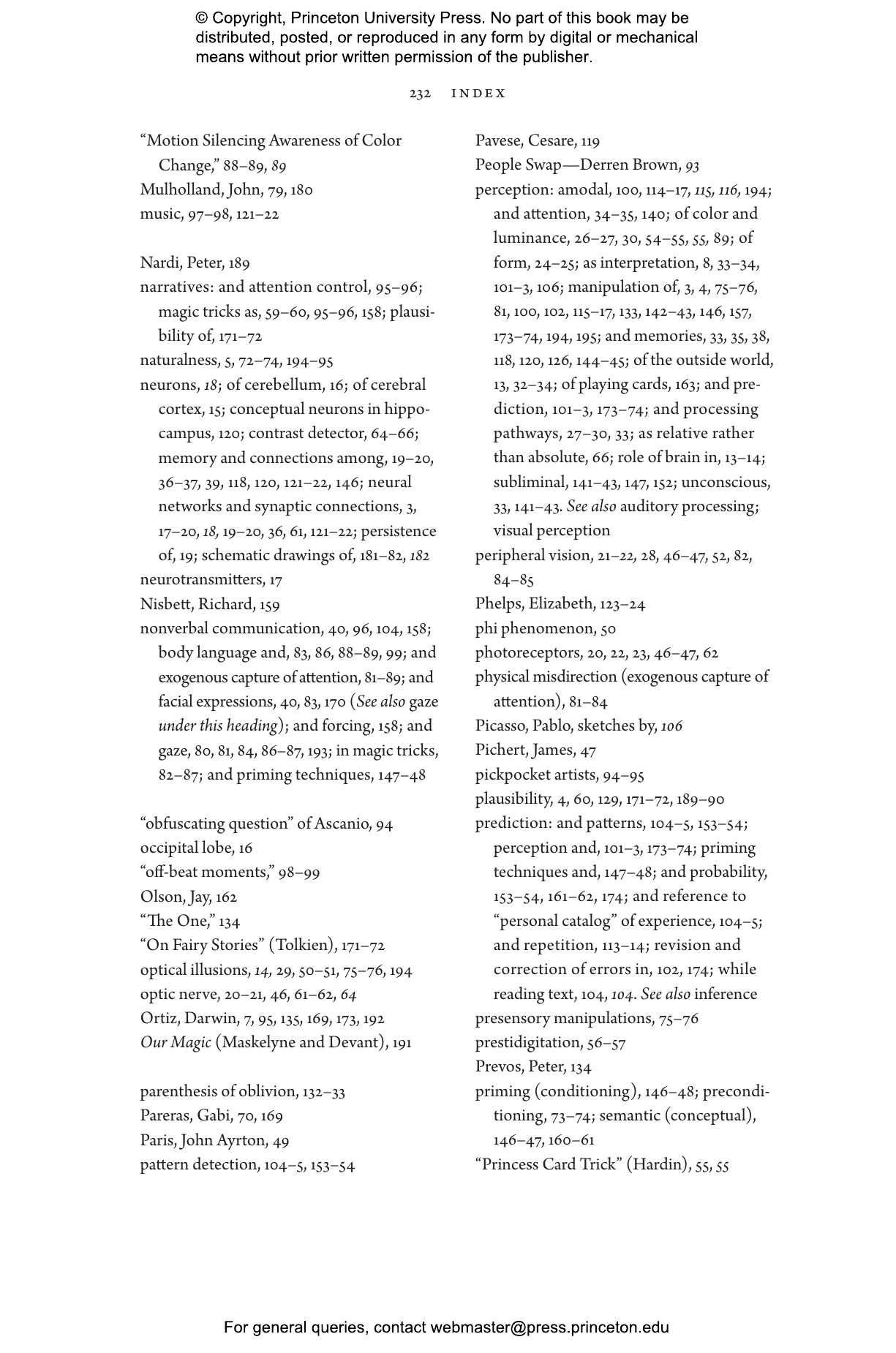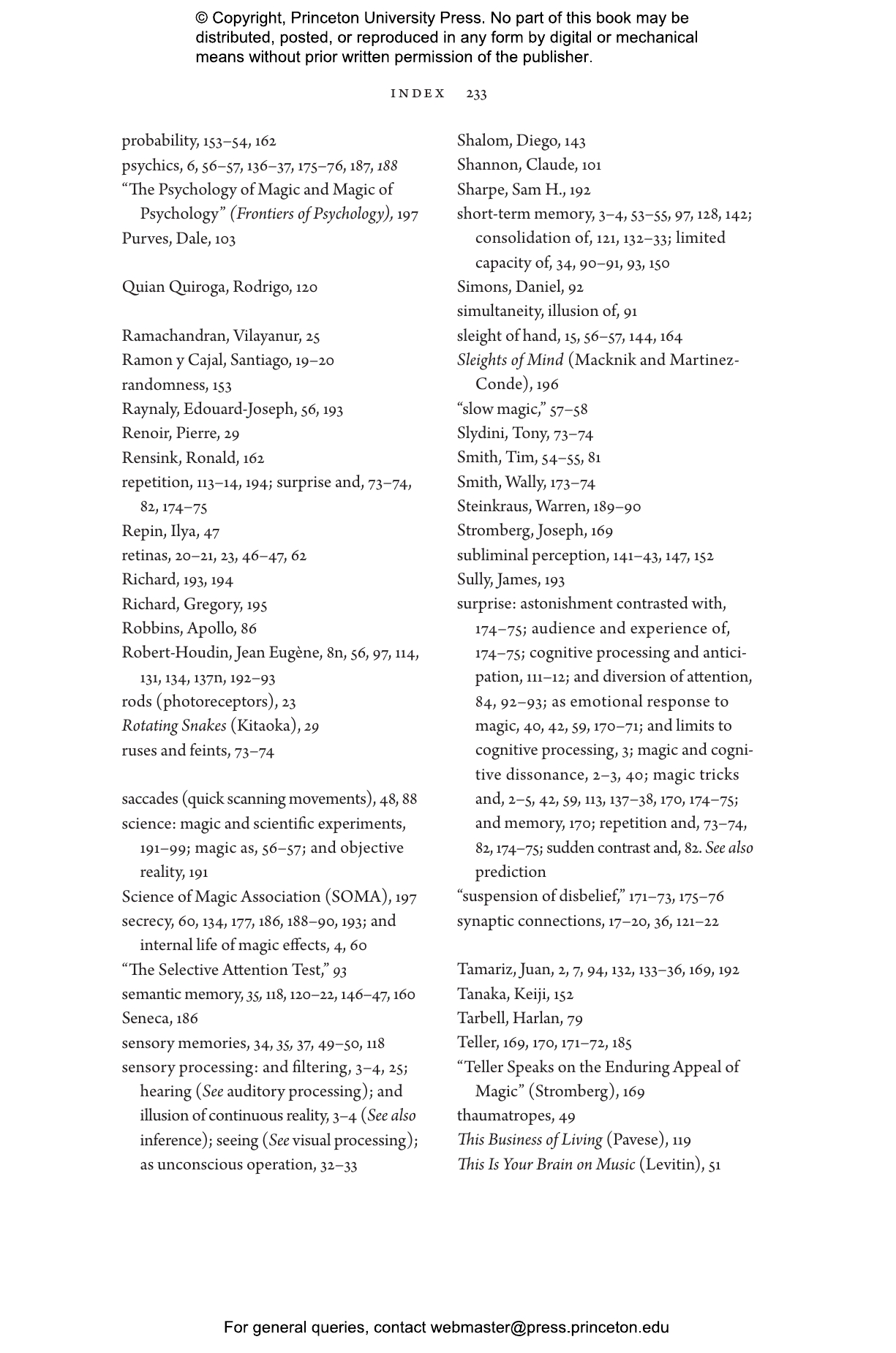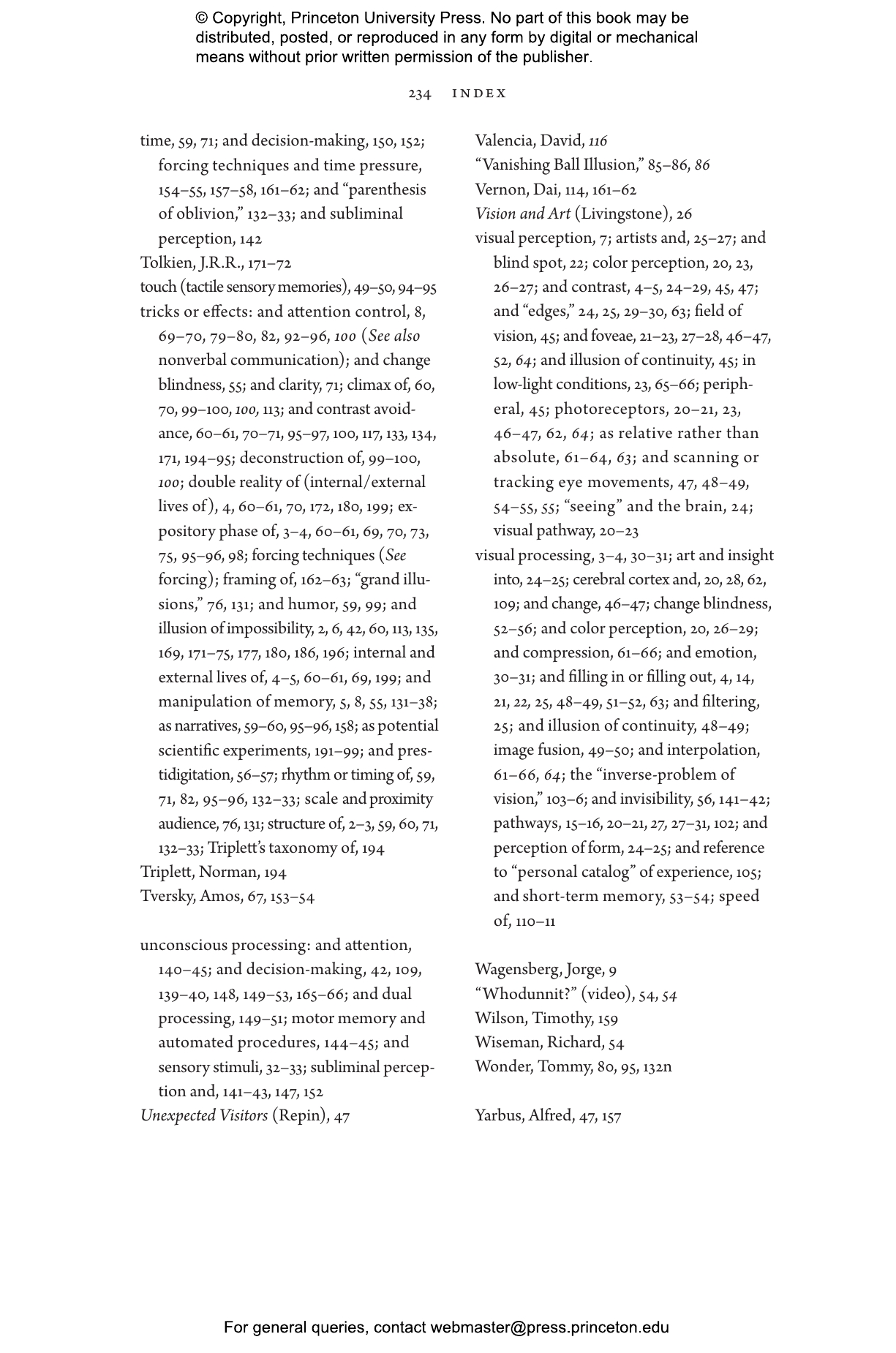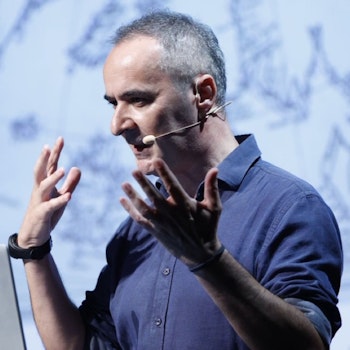How do magicians make us see the impossible? The Illusionist Brain takes you on an unforgettable journey through the inner workings of the human mind, revealing how magicians achieve their spectacular and seemingly impossible effects by interfering with your cognitive processes. Along the way, this lively and informative book provides a guided tour of modern neuroscience, using magic as a lens for understanding the unconscious and automatic functioning of our brains.
We construct reality from the information stored in our memories and received through our senses, and our brains are remarkably adept at tricking us into believing that our experience is continuous. In fact, our minds create our perception of reality by elaborating meanings and continuities from incomplete information, and while this strategy carries clear benefits for survival, it comes with blind spots that magicians know how to exploit. Jordi Camí and Luis Martínez explore the many different ways illusionists manipulate our attention—making us look but not see—and take advantage of our individual predispositions and fragile memories.
The Illusionist Brain draws on the latest findings in neuroscience to explain how magic deceives us, surprises us, and amazes us, and demonstrates how illusionists skillfully “hack” our brains to alter how we perceive things and influence what we imagine.
"In The Illusionist Brain, Jordi Camí and Luis Martínez elucidate the ways the two disciplines [psychological science and stage magic] can illuminate each other."—Matthew Hutson, Wall Street Journal
"This exploration of neuroscience through the lens of magic will appeal to science-oriented readers, as it is first and foremost a deep dive into how the brain processes information. It’s also sure to find an audience in anyone who has ever witnessed a magic trick and wondered how the heck it works."—Ragan O'Malley, Library Journal
"[A] tantalizing study."—Andrew Robinson, Nature
"Cami and Martinez act like Morpheus, explaining in simple terms, and with compelling examples, the intricate workings of the matrix in our brain. In their book, magic acts as a trigger to learn neuroscience principles that are presented through a fascinating and refreshing viewpoint, and that should also be interesting to the lay reader not acquainted with the sorcerers’ guild."—Rodrigo Quian Quiroga, Current Biology
"Thanks to this book, readers may arrive at a deeper understanding of daily experience through the intersection of neuroscience and the magical arts. The next time thisreader fi nds himself baffled by a magic trick, reflecting on which cognitive processes were hijacked will be thrilling."—J. E. Perez, Choice Reviews
“Camí and Martínez provide an exciting and rich introduction to the cognitive science behind magic, showing us the fruitful relationship between both disciplines while also pointing to as yet unanswered questions. Through this book, we can all enjoy the search for answers!”—Juan Tamariz, magician
“It may seem odd that a magician is interested in neuroscience or, likewise, that a neuroscientist is interested in magic. However, both seek an understanding of how the brain works. While magicians may want to learn basic principles underlying their tricks, neuroscientists may find in magic a completely refreshing approach to study the brain. Camí and Martínez provide a superb account of these interactions, offering the most up-to-date and comprehensive introduction to the emerging field of neuromagic.”—Rodrigo Quian Quiroga, author of NeuroScience Fiction
“Camí and Martínez give us the gift of a wonderful book that leverages one mystery—magic—to explain an even deeper one, how the brain makes sense of our experiences and how these, in turn, change our brains.”—Judith Hirsch, University of Southern California
“This book will satisfy the curiosity of anyone who wants to know how the brain’s perceptual failures work, through the lens of magic. It will also help us magicians, who have always acted out of intuition, to understand why our tricks work. Books like this one allow us the opportunity to understand each other better.”—Dani DaOrtiz, magician
